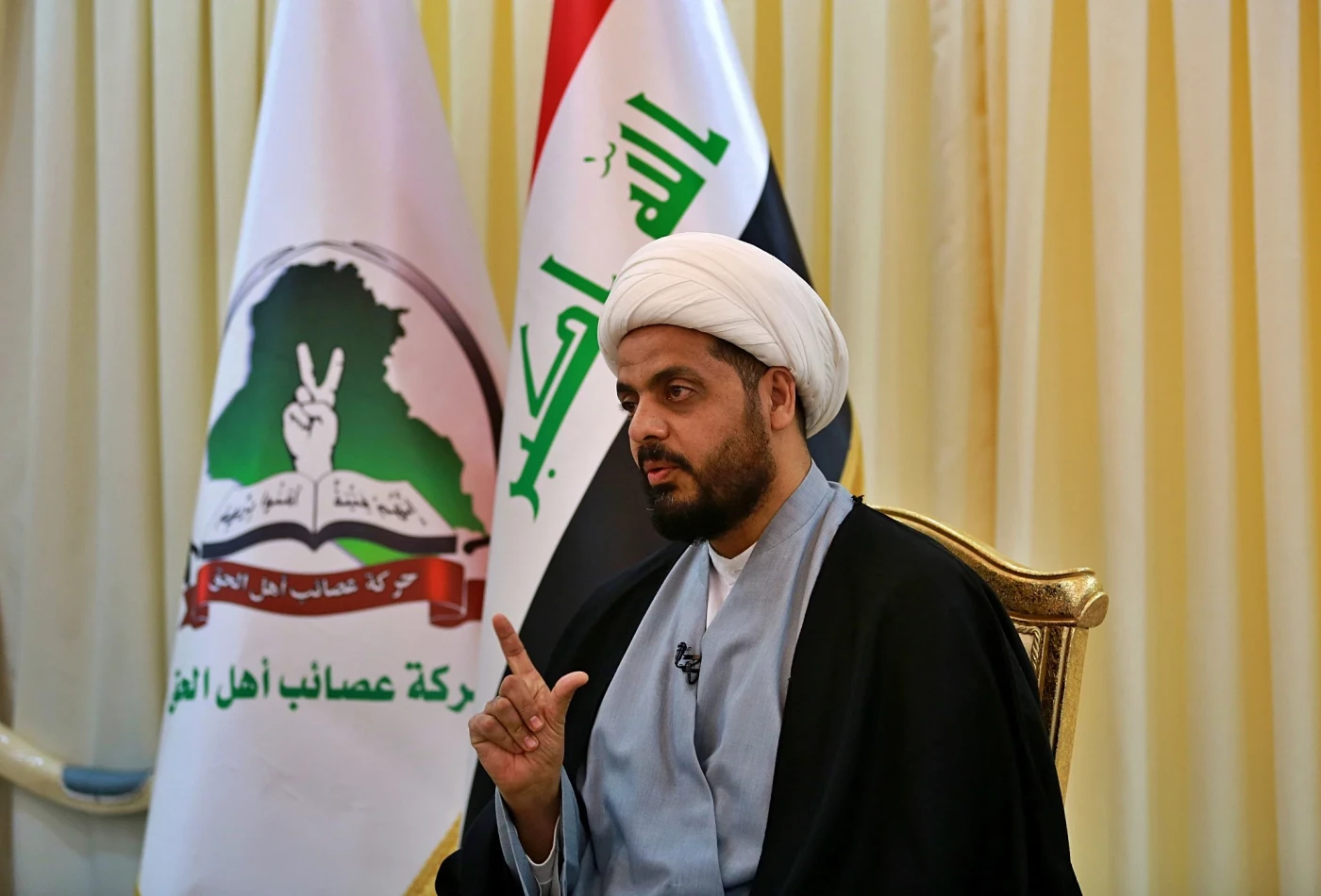A KRG official slammed as “foolish" recent remarks by Qais al-Khazali, secretary-general of the Iran-backed Asaib al-Haq (AAH), after he blamed Erbil for ongoing salary issues with Baghdad and cited inaccurate data against the Kurdistan Region.
ERBIL, Kurdistan Region of Iraq - A Kurdistan Regional Government (KRG) official on Sunday slammed Qais al-Khazali, secretary-general of the Iran-backed Asaib al-Haq (AAH), over blaming Erbil for ongoing salary issues with Baghdad, as the latter cited inaccurate data against the Kurdistan Region.
In an Eid sermon on Saturday, Khazali stated that Iraq has enough resources to “meet the needs of all its people,” including citizens in the Kurdistan Region, accusing the KRG of not cooperating with the federal government in handing over revenues and oil, and using it as a pretext for depriving civil servants of their salaries.
“The responsibility for running the state is one that is inclusive and shared, and does not fall on one party over another… the KRG is not handing over oil revenues to Baghdad and is selling them for a cheap price,” said Khazali.
Aziz Ahmad, deputy chief of staff to the Prime Minister of the Kurdistan Region, slammed Khazali’s remarks as “foolish”.
“We see what you’re trying to do. It’s foolish. You’re not as clever as you think,” Ahmad wrote in an X post, referring to the Shiite leader.
The Iraqi finance ministry in late May informed the Kurdistan Regional Government (KRG) that it will suspend funding the Region for the rest of 2025, claiming that Erbil had already exhausted its share of the annual budget.
Baghdad’s decision, deemed “a political decision” by Kurdish authorities, jeopardizes the livelihoods of the Region’s over one million salaried workers for the next eight months.
Khazali’s comments have already been refuted by the KRG natural resources ministry, which said in a Thursday statement that the Region has sent “more than 11 million barrels of oil” to the federal government over a period “exceeding five months,” adding that the Iraqi side has not sent the Kurdistan Region “a single dinar in return,” deeming it a “clear violation” of Baghdad’s financial obligations and agreements signed between the two sides.
In part of his speech, Khazali claimed that the poverty rate in the Kurdistan Region was higher than that in southern and central Iraq.
“The latest poll from Iraq’s south paints a grim outlook,” Ahmad responded to Khazali’s claims on poverty rates in the Kurdistan Region.
“Iraq enjoys a $150-billion-dollar budget. Why do Iraqis still lack access to basic services,” Ahmad said.
“Don’t try to deflect,” Ahmad told Khazali. “We know what’s truly behind your rhetoric. Our Iraqi brother[s] and sisters have a right to demand results from their long-standing miseries.”
The Kurdish official also slammed Baghdad for its subsequent failures to catapult Iraq out of its energy shortage issues.
“We stand ready to support our Iraqi brothers and sisters. We could help provide technical support and advice for the electricity sector,” Ahmad wrote in summing up his X post.
The Kurdistan Region’s ninth cabinet is currently modernizing its electricity sector with the environmentally friendly Runaki Project, a landmark round-the-clock electricity program that will see every single household in the Kurdistan Region illuminated with a 24-hour electricity service by 2026.
With the Runaki Project covering the entire Kurdistan Region, over 7,000 generators will be shut down, leading to a reduction in carbon dioxide in the air by 1.4 million tons annually, which is equivalent to removing 1.3 million vehicles, according to the KRG.
In an earlier X post, Ahmad expressed that the KRG was ready to extend a helping hand with technical support to put an end to the electricity crisis in Iraq’s southern oil-rich Basra province.
"Basra deserves better,” Ahmad said. "We highly appreciate the efforts of Basra Governor Asaad Al-Eidani to improve infrastructure. The Kurdistan Regional Government stands ready to provide the necessary technical support, particularly regarding achieving a 24-hour electricity supply, if necessary."


 Facebook
Facebook
 LinkedIn
LinkedIn
 Telegram
Telegram
 X
X



